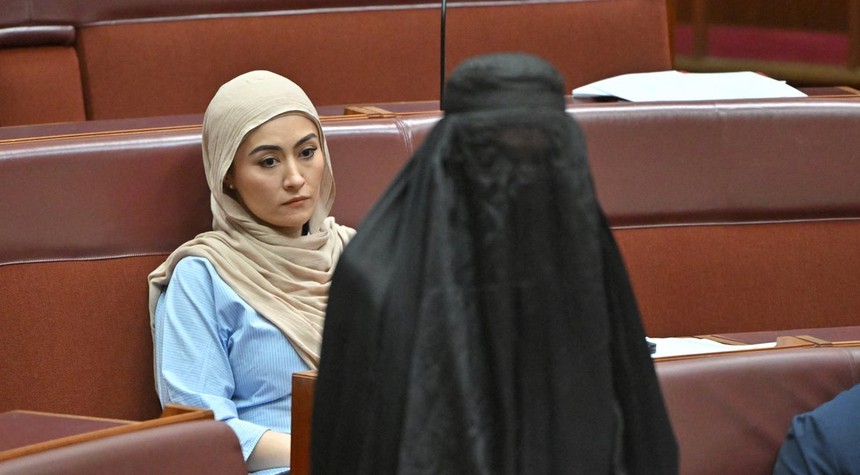The halls of Australian democracy witnessed a peculiar confrontation this week that speaks to deeper tensions roiling Western nations grappling with questions of immigration, religious accommodation, and free expression.
Senator Pauline Hanson of the One Nation party found herself suspended from parliament for a full week after staging what she characterized as a protest against Islamic face coverings. The veteran lawmaker donned a burqa and walked into the Senate chamber, refusing to remove the garment until the session was suspended.
This marks the second time in ten years that Hanson has employed this particular form of demonstration. Her stated purpose remains consistent: drawing attention to what she views as a security concern warranting legislative action. Hanson has repeatedly sought to introduce legislation banning burqas and similar face coverings in public spaces, only to see her colleagues refuse to entertain such measures.
The reaction from her fellow senators came swift and sharp. Larissa Waters, leader of the Australian Greens, did not mince words, calling the display “a middle finger to people of faith” and declaring it “extremely racist and unsafe.”
By Tuesday, the Senate had formalized its rebuke. In a decisive 55 to five vote, lawmakers passed a motion condemning Hanson’s actions as deliberately designed to “vilify and mock people on the basis of their religion.” The resolution further characterized her protest as “disrespectful to Muslim Australians.”
The incident raises questions that extend far beyond one senator’s theatrical gesture. At its core lies a fundamental debate about how democratic societies balance competing values: religious freedom, security concerns, cultural integration, and the bounds of political protest itself.
Hanson’s supporters would argue she employed a legitimate form of political theater to highlight what they view as a double standard. If face coverings present security risks, they contend, then the issue deserves serious parliamentary consideration rather than dismissal. Her critics counter that the demonstration itself constituted an act of bigotry, reducing religious practice to caricature and inflaming tensions in an increasingly diverse society.
The overwhelming vote against Hanson suggests where the majority of Australian lawmakers stand on this matter. Yet the 55 to five tally also reveals that Hanson retained some support, indicating this debate remains far from settled in the Australian political landscape.
This episode in Canberra mirrors similar controversies that have erupted across Europe and North America. France, Belgium, and several other European nations have implemented various restrictions on religious face coverings in public spaces, sparking ongoing legal challenges and heated public discourse. Each nation wrestles with how to reconcile liberal democratic principles with concerns about security, gender equality, and social cohesion.
For now, Senator Hanson will serve her suspension while the broader questions she raised, however controversially, continue to simmer in Australian political life. Whether one views her actions as courageous advocacy or offensive provocation likely depends on where one stands in the larger debate about immigration, religious accommodation, and national identity in the twenty-first century.
Related: Eric Swalwell Launches California Governor Bid Amid Federal Fraud Investigation


